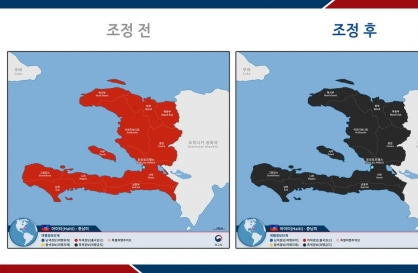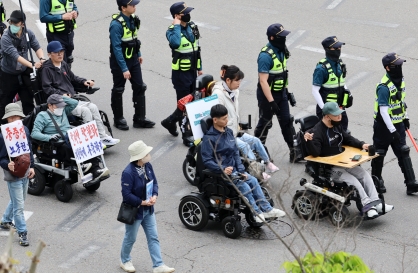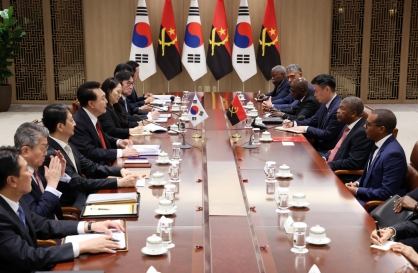[Editorial] Impromptu voting
Rival parties vote down a bill they agreed to pass, then agree to process it again
By Korea HeraldPublished : Dec. 14, 2022 - 05:31
An absurd thing happened in the National Assembly. Ruling and opposition parties passed a bill in standing and legislation committees then voted it down in the plenary session of the National Assembly. Then, a day after it was thrown out, they agreed to process it again.
The bill in question is an amendment to the Korea Electric Power Corp. (Kepco) Act that will increase the issue limit of its debentures.
Kepco has suffered a severe shortage of funds due to the previous administration's policy to phase out cheap nuclear energy while freezing electric rates. Its operating loss was an accumulated 21 trillion won ($16 billion) up to the third quarter of this year. The state-owned corporation had to cope with the shortage of funds through the issue of debentures. Its cumulative amount of bond issuance is expected to snowball from 38 trillion won last year to 72 trillion won this year to more than 100 trillion won next year, far exceeding the current statutory issue limit. Raising the limit has become inevitable. If the issue limit is not raised, Kepco will be unable to issue bonds as needed and will likely default on its debt.
The only other immediate alternative in that situation will be to raise electric charges steeply. But this is not a desirable choice, as it will stimulate inflation and increase burden on the people.
Ruling and opposition parties considered these difficult conditions facing Kepco when they agreed to move the bill to the plenary session for approval.
However, the amendment was voted down in the session on Dec. 8, with 89 lawmakers in favor, 61 against and 53 abstentions.
A significant number of National Assembly members of the opposition Democratic Party of Korea seem to have cast votes with little or no background knowledge of the amendment, after Yang Yiwonyoung of the party presented an opposing opinion in the session.
However, all of the concerns raised to call for opposition to the bill in the session are said to have been already discussed and settled in the standing committee. That Kepco's financial difficulty must be eased was a well-known fact and the bill was proposed to solve the problem. Furthermore, there was consensus between the parties on the necessity of passing the amendment. It is questionable if lawmakers cast votes extempore.
The ruling People Power Party has nothing to say, either. Fifty-seven of its 115 National Assembly members were absent from the vote, mostly to take part in events in their constituencies. No one in the party refuted Yang's argument. Moreover, two of them voted against the bill. If more lawmakers of the ruling party had attended the session and cast votes for the amendment, it could have been approved. Ruling party lawmakers were too easygoing, though they have criticized Moon's nuclear phase-out policy.
With criticisms pouring after the rejection of the bill, the two parties agreed on the following day to process the bill in the provisional session of the Assembly this month. Nobody apologized.
If lawmakers had cared a little bit about Kepco's financial conditions, they would not have opposed nor abstained nor attended the session. They should know well about bills before voting on them. A bill to cut back corporate tax rate is one of such bills.
In the wake of high inflation, recession looms large over the Korean economy. Its growth is forecast to fall to a 1-percent range next year. Exports decreased two straight months.
High inflation has made it difficult for the government to increase its spending to boost the economy. In this situation, corporate investment is the only way to stimulate the economy.
Korea needs to lower corporate tax rate to the level of competitors in order to reinvigorate investment. This must not be criticized as giving benefits to the rich. When it comes to bills with national competitiveness at stake, impromptu voting once is enough.
-
Articles by Korea Herald



















